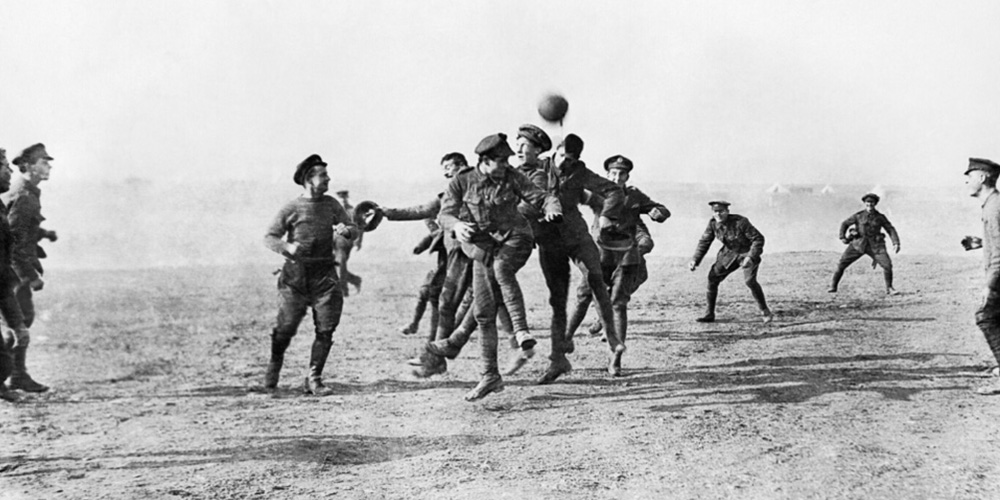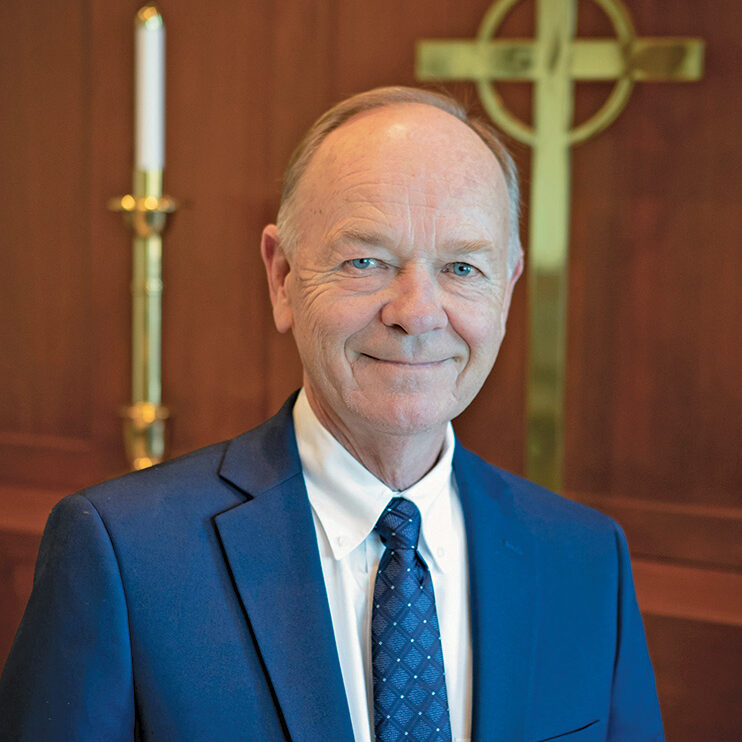 |
The year was 1914. World War I had thrown the continent of Europe into a conflict that would last for four years and kill or wound more than 25 million people. After a rapid German push into France, the advance stalled, and the armies of Germany and Great Britain dug in facing each other. From their cold and muddy trenches on either side of the line, soldiers on both sides could hear their enemies talking. They could see the smoke of the campfires and smell each other’s cooking.
Then, in the middle of the horror of a bloody war, something very unusual happened. It was Christmas Eve. The guns and artillery on both sides had fallen strangely quiet. At 8:30 p.m., from the other side of the no man’s land separating the two armies, the British soldiers heard something. It was singing. German soldiers were singing “Stille Nacht.” The British soldiers responded by singing “The First Noel.” Then, cautiously, a British private climbed out of his trench and crawled through the barbed wire. He was met by a German scout who offered him whiskey and cigars. Before long, soldiers along the entire front were mingling with their enemies, singing Christmas carols together, sharing gifts of chocolate and tea, and even participating in a pick-up game of soccer. (The Germans won the game by a score of 3-2; English soldiers claim that an English chaplain serving as the referee missed a foul that would have taken the winning goal away.)
It was a poignant moment in history—a moment of peace and friendship in a time of war between enemies. But the peace enjoyed that evening would not last. As dusk arrived on Christmas Day, one German soldier said to his new English friend, “Today we have peace. Tomorrow, you fight for your country and I fight for mine.” There would be no further moments of peace until the end of the war in 1918.
We long for peace—especially in a year like 2020. We pray for peace in our cities. We hope for peace in our polarized political arena. We desire peace between racial and ethnic groups. We yearn for peace between nations. It’s not surprising that so many long for peace during the Christmas season. “Peace on earth!” is printed on Christmas cards, featured in songs, and spoken in Christmas greetings.
But when the angels proclaimed that the newborn Savior would bring peace on earth, they were not talking about the end of war, calm in the streets, or civility in politics. All those kinds of peace are certainly desirable and are blessings when they happen, but that peace is fragile and uncertain, sure to be fleeting and temporary.
The peace proclaimed by the angels outside of Bethlehem is completely different.
They announced a peace between God and his rebellious people that cures troubled consciences and removes guilt. They spoke of a peace that was not temporary but a spiritual peace that would last for all eternity. They spoke of a peace that was not the result of skillful negotiations or careful compromise but was rather accomplished when, 33 years later, the baby born in Bethlehem would say from the cross with the voice of total victory, “It is finished.”
So, sing with the angels this Christmas. Praise God for giving us the kind of peace that the Christ Child brought to you and all people.
Author: Mark Schroeder
Volume 107, Number 12
Issue: December 2020
- The mission of WELS schools
- Blessings in tragedy
- Confusion or comfort?
- Never take it for granted
- A season of miracles
- Don’t miss the point
- Another humbling experience
- Our cross and crown
- The public ministry and the divine call
- No fear of bad news
- Big challenge, bigger blessings
- Our worldwide fellowship
- Seize the opportunities
- The Lord takes care of his church
- Savor the rain
- Up close and personal
- It’s never too early
- Thanks for not giving
- Hope for the future
- Our task is not over
- Update on WELS’ effort in Vietnam
- More workers for a bountiful harvest
- 150 years of fellowship
- A unique system of schools
- God’s cure—for everything
- Lenten repentance, Lenten appreciation
- Pray for us
- Plan with wisdom and faith
- Purposeful discussions
- Upholding biblical values
- President’s message: To judge or not to judge
- President’s message: A field ripe for harvest
- President’s message: Thoughts about the new hymnal
- President’s message: Cooperating in externals
- President’s message: Canceling the cancel culture
- President’s message: Making normal a reality
- President’s message: The fields are ripe for harvest
- President’s message: The end of the story
- President’s message: Blessings small and large
- President’s message: Standing on the truth
- President’s message: Peace on earth—but what kind?
- President’s message: Thankful—even now?
- President’s message: More than dollars and numbers
- President’s message: A time for trust
- President’s message: Future unknown, future certain
- President’s message: God’s work does not stop
- President’s message: A lesson to be learned
- President’s message: Having the right tools
- President’s message: What kind of leaders?
- President’s message: What’s love got to do with it?







